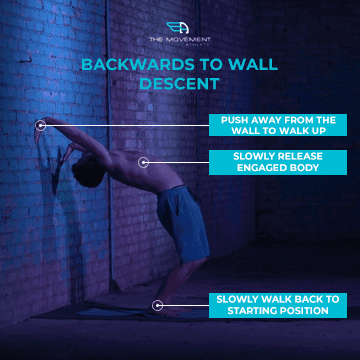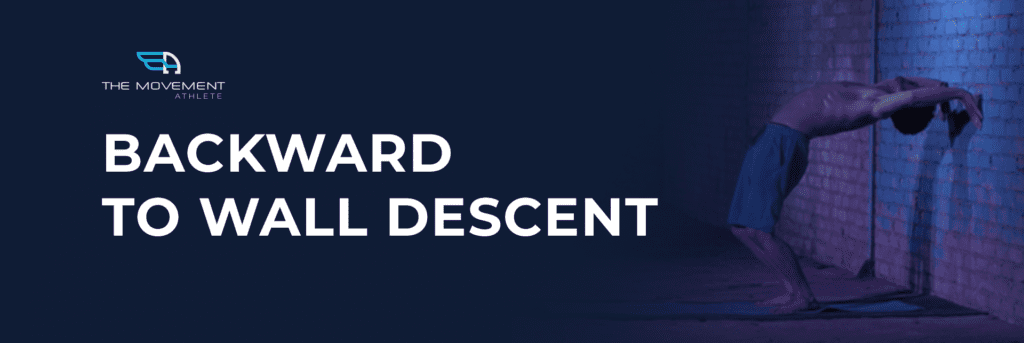
Backwards to wall descent is a progression for a full back bridge on the floor. It’s such an underrated exercise that can provide a huge impact on overall strength and health. So I highly suggest including this to your workout regimen. You have to do it in proper form to reap its benefits.
The exercise engages the whole posterior chain from the lower body to the upper body. This means stronger lower and upper back, glutes, rear deltoids. It also promotes mobility and flexibility. Having a stronger and mobile and flexible posterior chain leads to better spine, posture and pain-free back. No more back aches from sitting in your 8-hour work shift.
👍HOW TO KNOW WHEN IT’S SAFE TO ATTEMPT?
This exercise is an easier progression for the full back bridge. It’s fairly safe to attempt as long as you do it properly and slowly. The only prerequisite you need is the will to get stronger and better.
✅Summarized Benefits
- Strengthens posterior chain muscles
- Improves shoulder and back mobility and flexibility
- Prepares you for a full back bridge on the floor
- Strengthens core
- Assists in muscle imbalances
- Better posture
How to Perform💪
- Facing away from a wall, simply stand about 2 or 3 feet from the wall.
- Placing your arms overhead, lower back until your hands touch the wall.
- Once your hands touch the wall adjust the position. You should be able to comfortably and fully lean on your hands and walk down.
- Walk your hands down the wall until you can look at the wall backward.
- Pause and slowly walk your hands back.
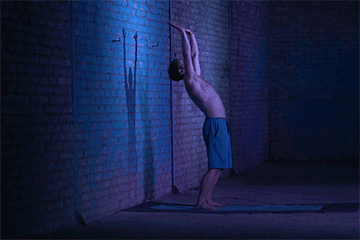
👉Keep in mind
Slowly ease into the movement. You don’t necessarily be far away from the wall and still reach it. Start to reach the wall from where you can only bend then walk downward when you can. This will prevent any injury.
Engage your core as you are going through the movement. You’ll also need it to maintain the proper form of the exercise.
Do not forget to breathe when doing exercising. It’s very tempting to hold your breath just to execute a repetition to the fullest but you will not maximize your gains through this manner. Take deeps breaths in and out of the exercise.
Coaching Pointers
Starting Position:
- Provide enough distance from the wall you can reach
- Bend your back slowly backwards
- Core engaged
- Look up
- Arched back
- Knees and hips forward
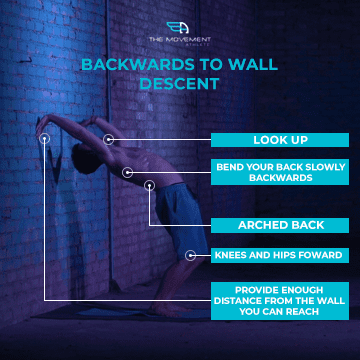
Movement Position:
- Deeps breaths
- Walk slowly to lowest position
- Look straight
- Retracted scapula
- Arms upwards
- Upper body parallel to the ground
- Feel a stretch but no pain
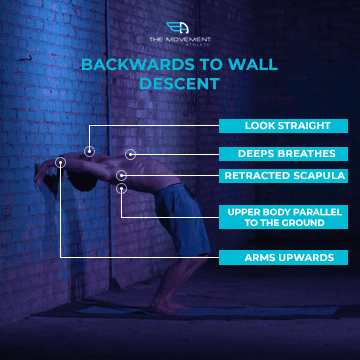
Finish Position:
- Slowly walk back to starting position
- Push away from the wall to walk up
- Slowly release engaged body
